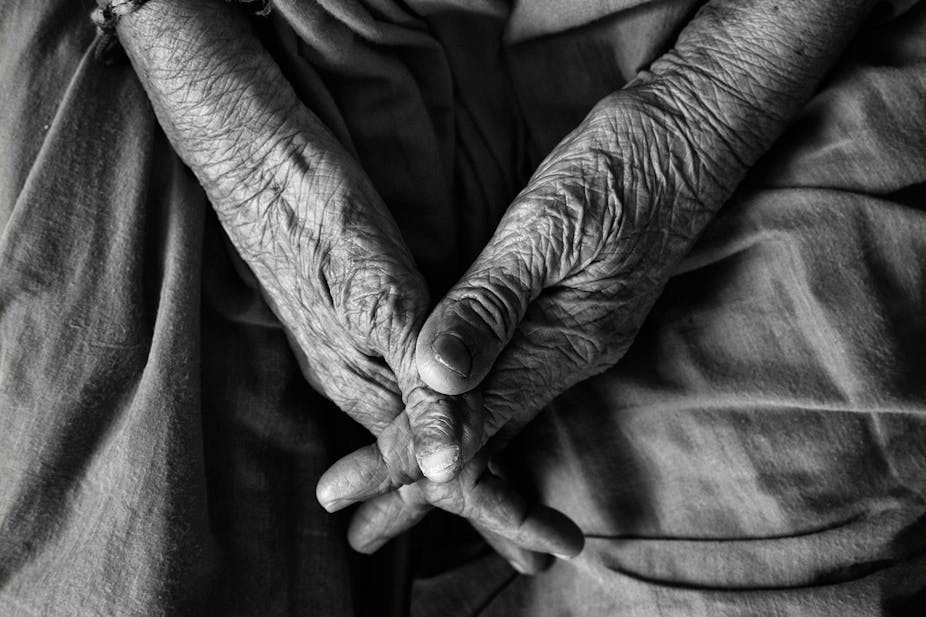Cockroaches in the kitchen, kerosene in the bath, abuse and malnutrition - these are the aged-care stories that often make headlines.
We, the public, respond with outrage and calls for more staff and more money. But there is something really wrong here - and it is not about more staff and more money. Such actions are ultimately bandaids.
What we have is a societal problem.
Sure, there will be some facility boards, managers, staff and families doing the wrong thing, but if we are to genuinely address the issues in older people care, we need to move beyond blame and shame of individuals and facilities.
We have to care as much about older people as we do about younger people if we are to witness real and sustained improvement.
I have never heard children called bed blockers; I have never seen tin rattlers at the lights collecting for older people. I know of no product that purports to help us look older.
The vested interests in Western society make a fortune from their success in teaching us to worship youth: anti-ageing creams, hair dyes and surgery are just some examples.
Social responsibility
It is way past time that we took social responsibility for recognising that people of any age are people. They may have pimples, wrinkles, smelly nappies, HIV AIDS, dementia, no legs or be Siamese twins.
The bottom line is that very few people meet the poster-person image of “normal” and then only for a very short time.
Unless we die, we will all be old and as a society that is a success: life expectancy was 47 years old not so long ago. Now, thousands reach 100. Of those who reach 85, many will live with dementia.
None of this has to be “ugly” if, as a society, we value people and their diversity.
Currently, we are conflicted: we use every modern technological wizardry, regardless of cost, to show how clever we are at saving lives; then, we complain that our successes are a burden on society.
We complain about the people who try to care with insufficient education and leadership. We blame everyone but ourselves.

Well, guess what? Until you and I recognise the value of older people, and make care of older people and people with dementia an issue of high importance beyond elections, then we are hypocrites to be horrified by what happens in nursing homes.
If old age is so awful, then let us pick an age after which it is okay to die and stop all the medical interventions. In this case, we would need a major campaign to educate people that dying is all right.
Depending on your beliefs, you would learn that you simply become ashes or that you pass through the pearly gates and, after a suitable period of grieving, everyone will get on with their lives.
On the other hand, if we choose to throw resources at cure/survival, and if we really care about how people are treated in aged care, then we must re-evaluate our view of old age.
We need to see it as a success of monumental proportions and value older people as expressions of this accomplishment.
This change in attitude also requires the courage to face our own ageing and a commitment to removing the taboo, as a society, about death, dying and the real meaning of life.
Ageing campaigns
What we need is a major public awareness campaign about valuing older people and ageing.
We invest far more in multicultural awareness, indigenous welfare and gay, lesbian, bisexual, transsexual and intersex (GLBTI), than we do in overcoming the stigma associated with old age and especially dementia.
Certainly, the recent election campaign failed to address the growing needs and impact of our “ageing tsunami”. Tony Abbott’s suggestion that he will unlink funding from the workforce compact is even more worrying.
Increased wages for aged care workers do have a role to play in valuing older people. And there needs to be a carrot/stick approach to ensure there is quality staff of all levels, including GPs, providing such care.
Accreditation has improved aged care, with a lot of “shonky” providers leaving the industry. We do not want them back. But the financial reward is only one factor in staff recruitment and retention. And aged care ratios do not solve any problems.
What aged care needs is vision, leadership, staff development and decisions driven by the goals and needs of older people and their carers. And ultimately, it needs a social system that cares more about older people than shifting blame and pointing at the proverbial other.

